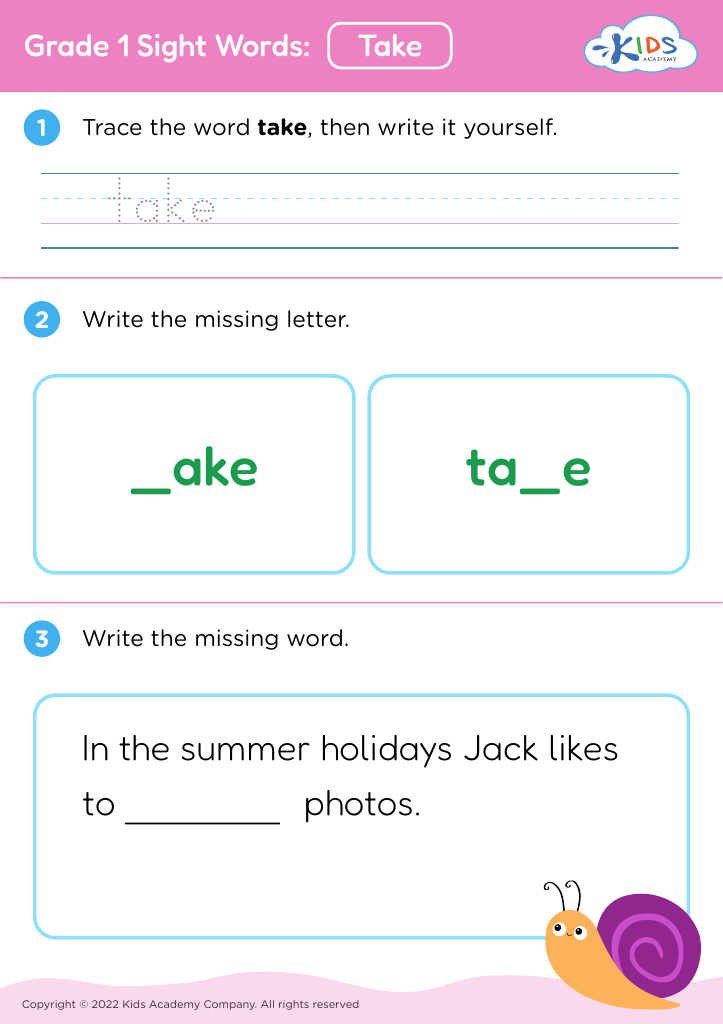Mathematical problem-solving Worksheets for Ages 4-8
8 filtered results
-
From - To
Unlock your child's potential with our engaging Mathematical Problem-Solving Worksheets for ages 4-8! Specially designed to make math fun and accessible, these worksheets support early learners in developing critical thinking and problem-solving skills. With colorful illustrations and age-appropriate challenges, kids will enjoy exploring fundamental concepts such as addition, subtraction, and basic geometry. Each worksheet encourages independent thinking and builds confidence in mathematical reasoning. Perfect for classroom use or at-home learning, our resources cater to various learning styles, ensuring every young learner is inspired to tackle math challenges. Start your child's math journey today and watch them thrive!
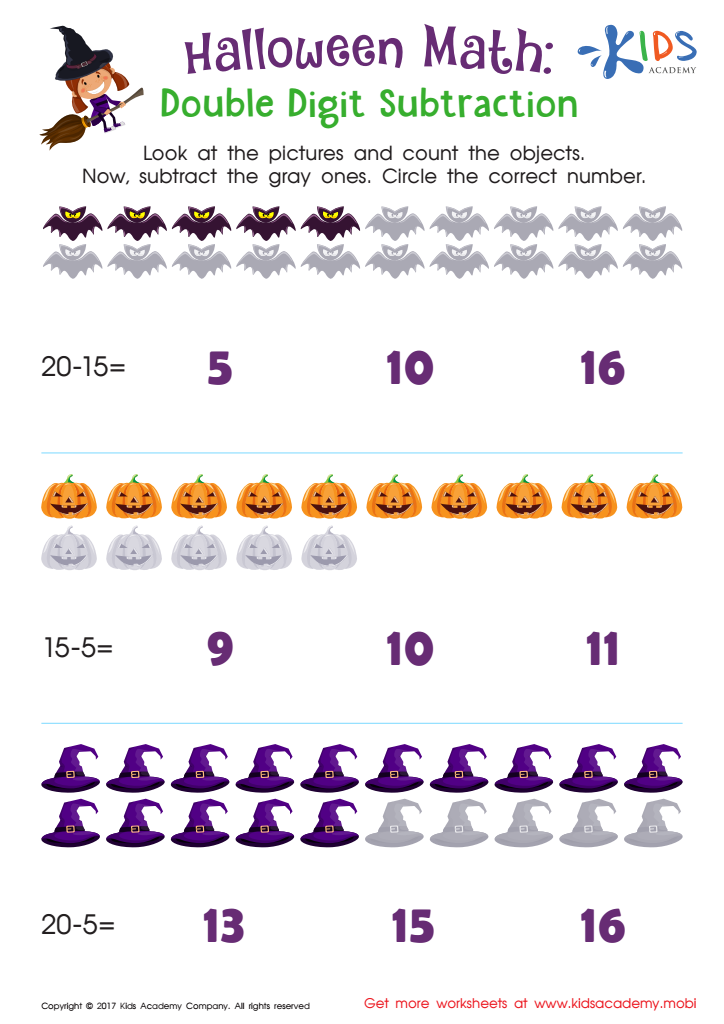

Halloween Math Subtraction Worksheet
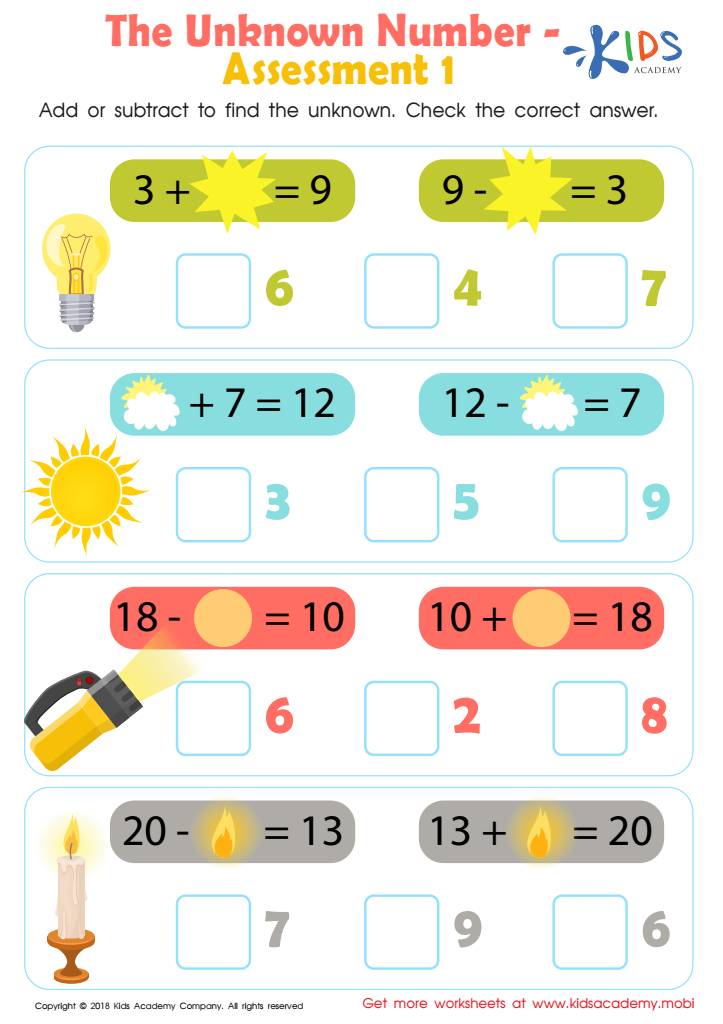

The Unknown Number: Assessment 1 Worksheet
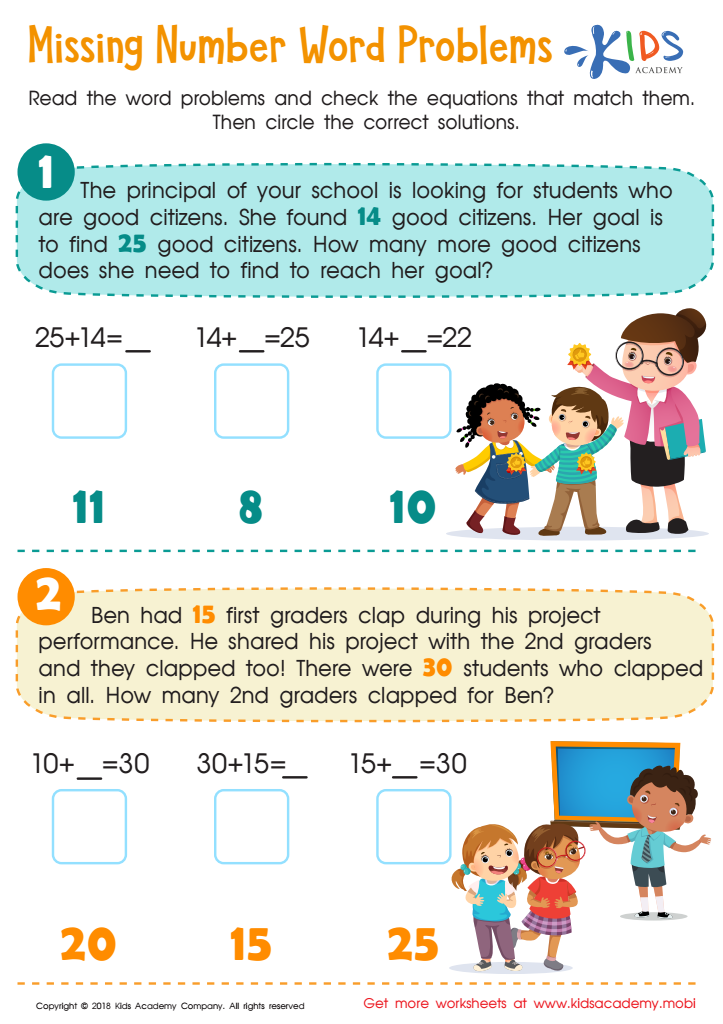

Missing Number Word Problems Worksheet
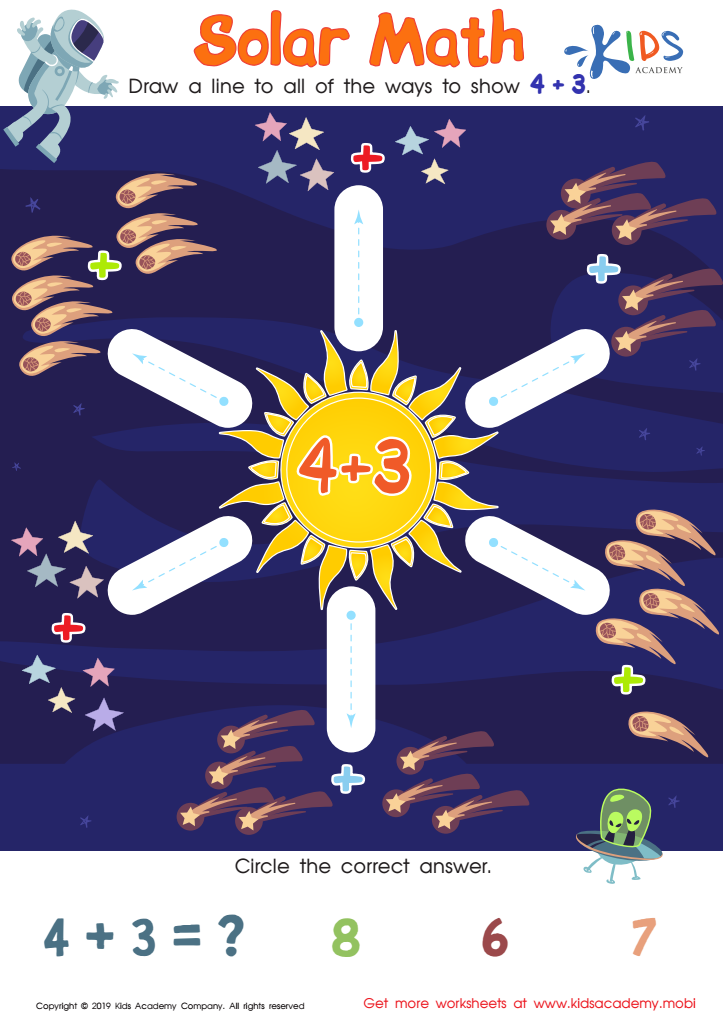

Solar Math Worksheet
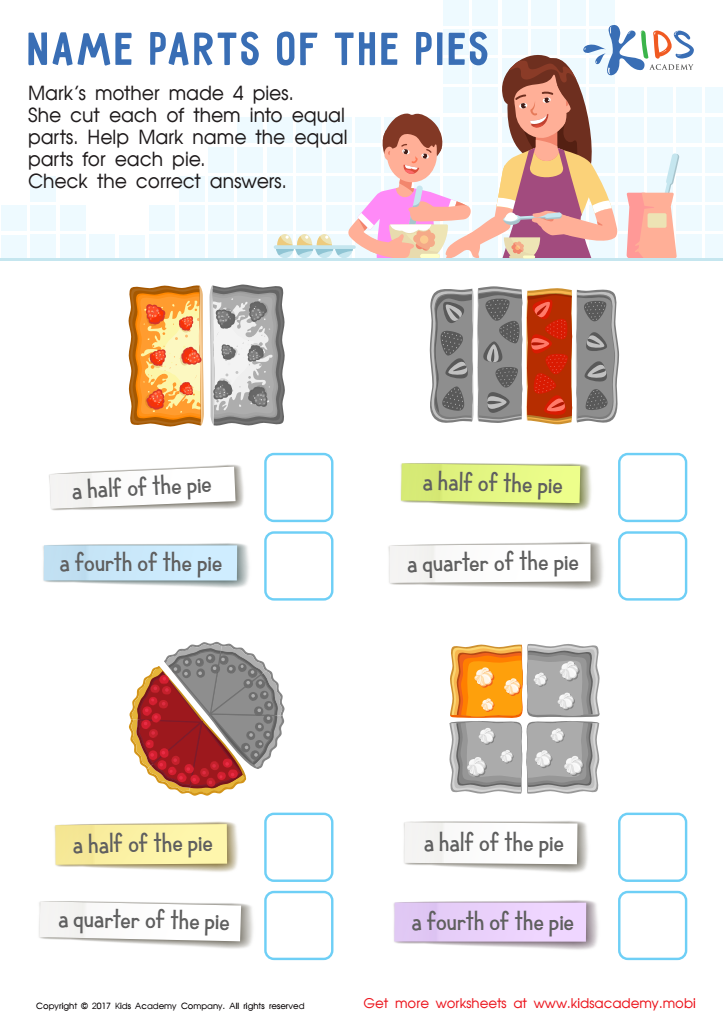

Name Parts of the Pies Worksheet
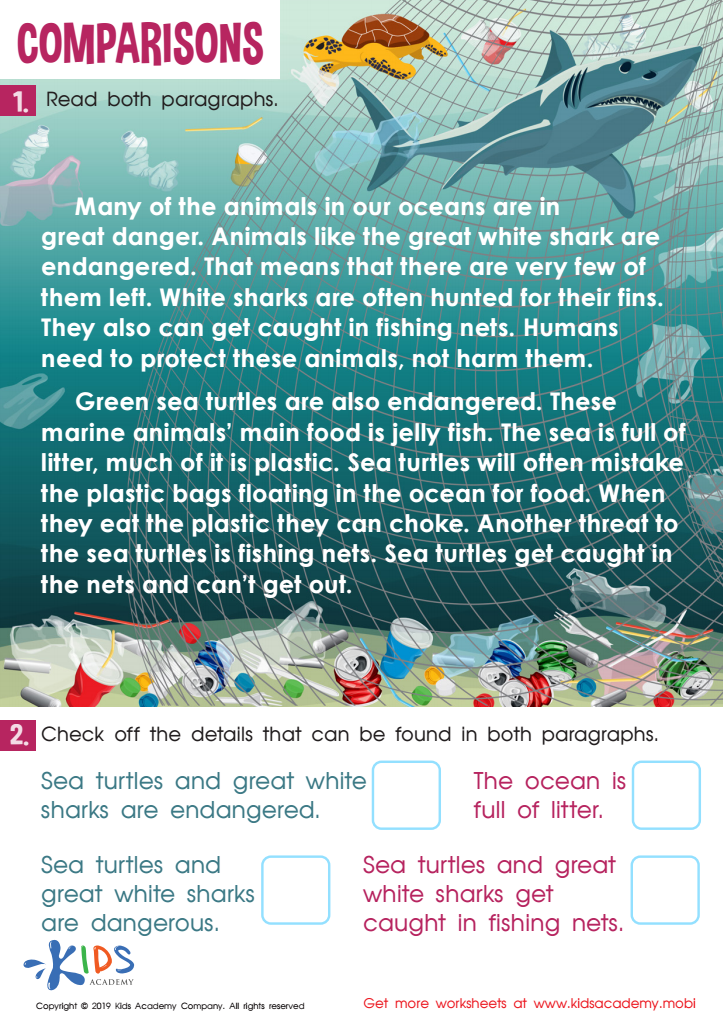

Comparisons Worksheet
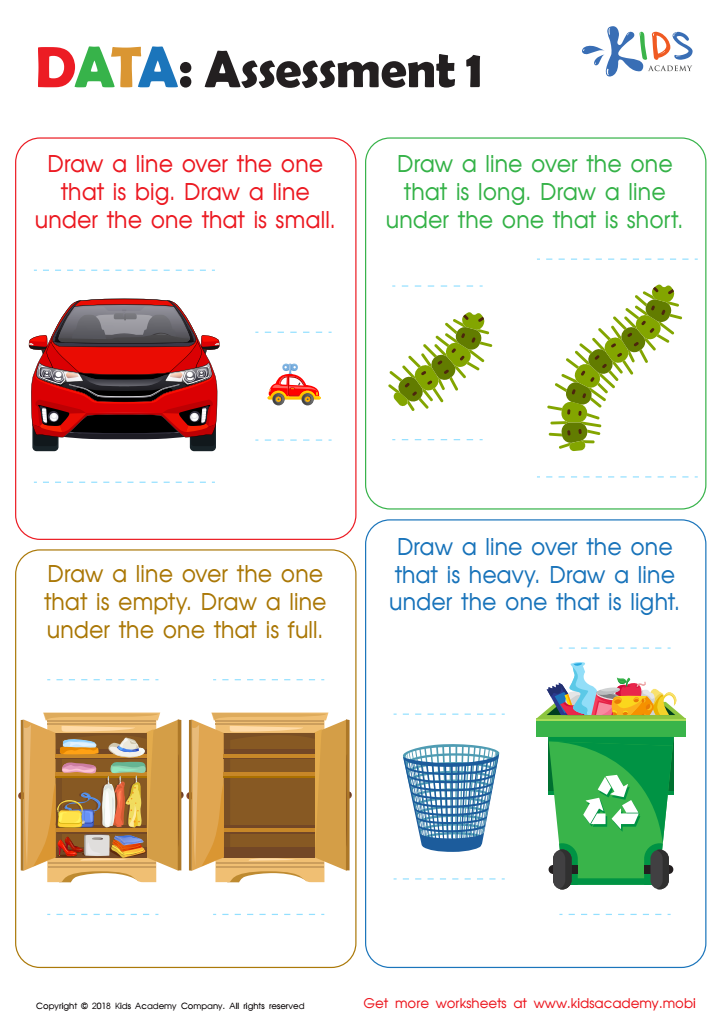

Data: Assessment 1 Worksheet
Mathematical problem-solving for children ages 4-8 is crucial for their cognitive and emotional development. At this stage, children are naturally curious and eager to explore the world around them. Engaging them in problem-solving activities fosters critical thinking and encourages them to ask questions, experiment, and make connections with what they observe. It also nurtures their innate curiosity and builds resilience when faced with challenges.
Furthermore, strong problem-solving skills form the foundation for more advanced mathematical concepts and applications later in life. By emphasizing these skills early on, parents and teachers are helping children develop a growth mindset—teaching them that abilities can improve with practice and perseverance.
Mathematics is not just about numbers; it encompasses logic, reasoning, and patience. By fostering a playful and supportive approach to mathematics, adults can prevent math anxiety and promote a positive attitude towards learning.
Moreover, engaging children in collaborative problem-solving encourages teamwork and communication skills, vital for social interactions. As they tackle challenges together, children learn to respect diverse perspectives and solutions.
In summary, prioritizing mathematical problem-solving for young children cultivates essential skills that support lifelong learning, fosters confidence, and equips them with tools to navigate their environment effectively.

 Assign to My Students
Assign to My Students
